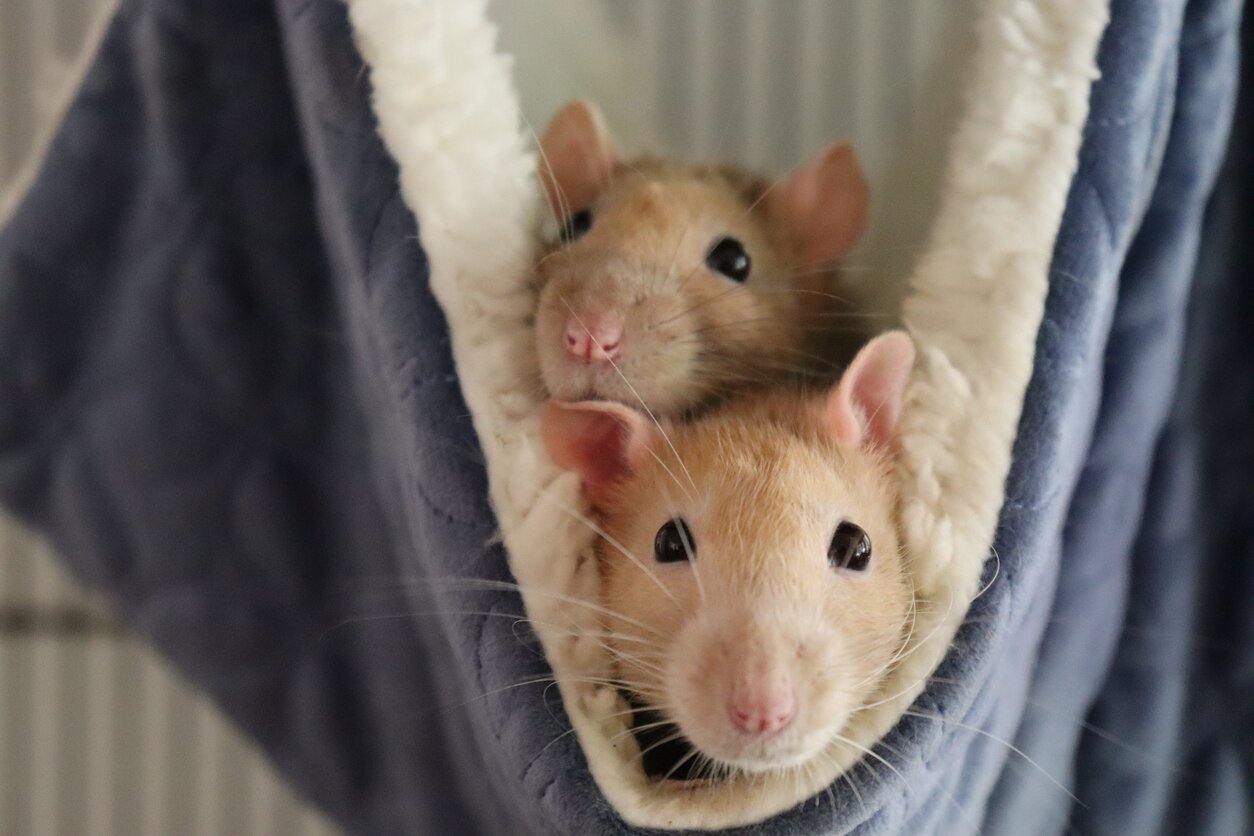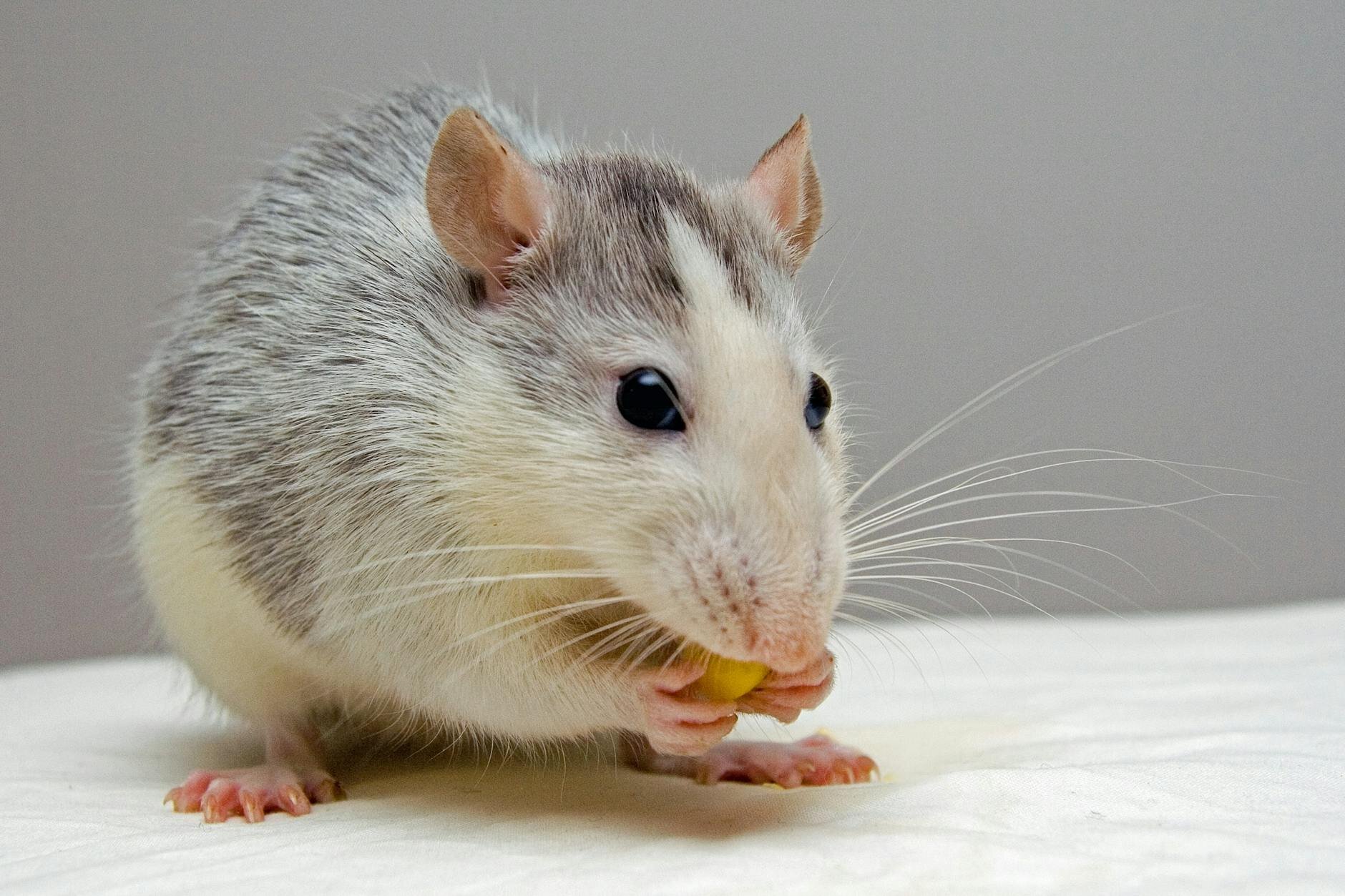Last Updated: 06/06/2025
Rat Care Guide
Thinking about getting a Rat as a pet? This guide covers everything you need to know including diet, preventative health, enrichment, training and general tips to keep your rat happy and healthy.
Author: Gemma Radcliffe
Reading Time: 22 minutes - medium read
Squeak! While some people might think of rats as dirty little critters that like to chew on wires, we think the complete opposite here at Pet Circle. Pet rats are affectionate, highly intelligent and downright adorable creatures that make great pets, but can be rather misunderstood from time-to-time...
With rats' bad rap coming from the devastating effects of the Black Death in the 1300s (it was the fleas, darn it!), many people get their rat facts mixed up. For example, did you know that rats are super clean? And that they are highly intelligent and able to be trained to do tricks? If you think you'd love to have one of these smart creatures by your side, read on and discover our beginner's rat care guide.
Finding your furry friend
Like most pets, rats are available to be adopted from rescue groups - you may just have to do some clever hunting, as they aren't as popular as cats and dogs. Alternatively, you can seek out a registered breeder to ensure that your new companion is healthy and free from diseases. Look up your local Rodent Fanciers Society to get in touch with some reputable breeders. Take care when adopting rats from a pet shop, as their health, breeding and temperaments are often unknown.
When choosing a rat look for the following:
- A shiny clean coat with no patchy fur loss
- Clear bright eyes without discharge
- Clear nostrils without discharge or sneezing
- Clean feet without sores or redness
- Active and curious temperaments
- Well formed poops
There are a few other things to consider as well when looking for a pet rat, such as what gender you will choose. Males tend to be more affectionate, but desexing is a good idea to prevent spraying and fighting. Female rats are much smaller, highly active and enjoy building and snuggling in their little nests. Whichever gender you choose, it's best to stick with all males or all females to prevent unwanted pups and minimise stress in your mischief (that's what a group of rats are called!).
Get them a companion
Get the right supplies
It's important to get the right supplies, when bringing your rats home. Rats are very clean, interactive and affectionate, which is why they make such great pets! We recommend you grab the following essentials before bringing your new rodent home:
Grooming
Rats are actually very clean critters and generally take care of grooming themselves.
Nail clipping is not usually necessary. However if your rat is not particularly active, or does not have toys and surfaces that naturally wear down their nails, they may become overgrown. Their nails can be clipped using Small clippers for puppies and kittens. However, it is challenging and we recommend getting your veterinarian to help you with this.
Parasite prevention
Rats don't generally routine parasite protection but at times they can become afftected by parasites such as mite and lice infestations. These can be treated with very small doses of Revolution - but you must be careful that you don't over-treat your little companion, so make sure you always consult with your vet before use.
To reduce the risk of reinfestation and to keep your rat's enclosure clean i general consider using a veterinary safe disinfectant to help with routine disinfection of their enclosure.
Health
Did you know rats can be sterilised? Sterilisation helps reduce the risk of infighting, prevents unwanted pregnancies, and reduces the risks of reproductive cancers. Speak to your veterinarian to discuss these procedures in more detail.
As a prey species, rats are very good at disguising signs of illness, pain or discomfort, until they are extremely unwell. Unfortunately, rats age much faster than many other animals and as such they should have a health check with a veterinarian at least every 6 months.
Rats are particularly prone to respiratory diseases and mammary tumours. Keeping a clean enclosure, free of dust and excessive ammonia build up is very important. In addition frequent handling of your rat can help you to identify any abnormalities such as unusual lumps and bumps. Always seek assistance from an experienced veterinarian if you have any concerns about your rats health or behaviour.
Training
Would you be surprised if we told you that you can not only litter train your rat, but also clicker-train them and teach them to recognise simple words? Rats are intelligent and love to run obstacle courses, and of course are happy to cuddle so long as you approach them gently (never pick a rat up by its tail!).
Further Reading
Want to read more? Check out our other articles:
Respiratory Disease in Rats and Mice
Top Tips to Get Your Pet to Eat More Hay



